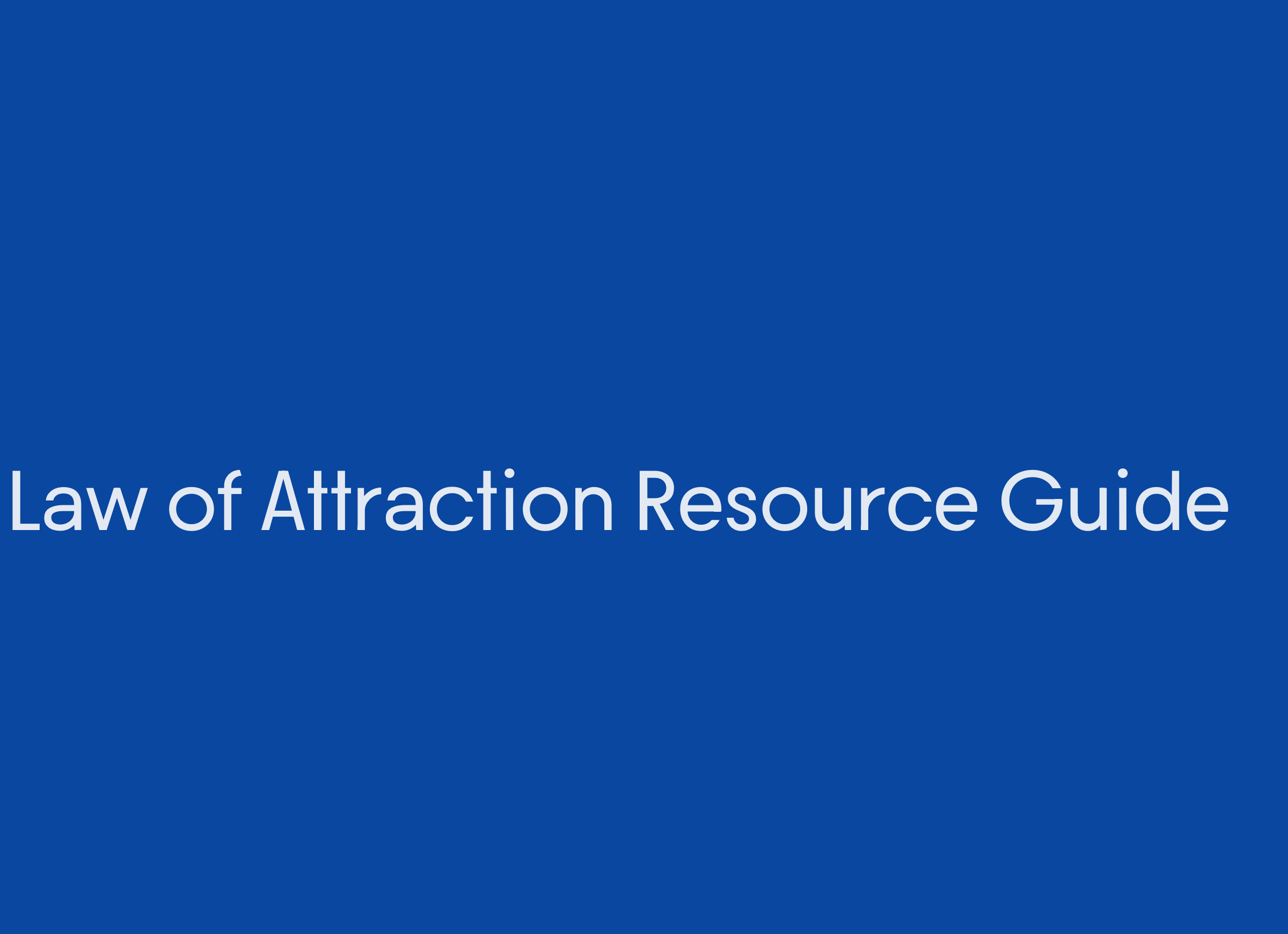Health And Wellness
Foods, Beliefs, Cravings, and Cellular Compensation: Understanding Your Body
Satisfy your curiosity about how hormones, nutrients, and emotions shape your food choices and cellular health in unexpected ways.

Understanding the intricate interplay between hormones, nutrients, and brain chemistry illuminates the complex web that orchestrates your body's cravings, beliefs, and cellular compensatory mechanisms. Hormones like leptin and ghrelin influence your cravings, while nutrient deficiencies can lead to specific food desires. Emotional triggers, such as stress and mood swings, also play a role in cravings. Cellular compensatory mechanisms promote optimal cell function and energy balance. By identifying your nutritional needs, managing temptations, and addressing emotional triggers, you can make healthier choices. This knowledge empowers you to take control of your health and well-being effectively.
Key Takeaways
- Nutrient deficiencies drive specific food cravings.
- Beliefs and emotions influence cravings.
- Hormones regulate appetite and cravings.
- Cellular compensation mechanisms adapt to nutrient availability.
- Understanding these factors aids in making informed dietary choices.
Biological Basis of Food Cravings
Understanding the biological basis of food cravings can shed light on the intricate hormonal mechanisms driving your desire for certain foods. Hormones play a vital role in regulating your appetite and satiety levels.
Leptin, often referred to as the satiety hormone, works to decrease hunger signals in your body. On the other hand, ghrelin, known as the hunger hormone, increases appetite and can trigger cravings for specific foods. These hormonal imbalances can lead to intense cravings, influencing your food choices and eating behaviors.
Moreover, nutrient deficiencies can also impact your cravings. When your body lacks essential nutrients, it may signal cravings for specific foods that contain those missing nutrients.
Impact of Hormones on Cravings

Hormones such as leptin and ghrelin have a significant impact on your food cravings.
Leptin communicates feelings of fullness to your brain, while ghrelin triggers hunger and cravings.
An imbalance in these hormones can lead to increased cravings and disrupt your eating habits.
Hormones and Cravings
Leptin and ghrelin, key hormones in your body, exert a powerful influence on your cravings for food. Leptin, produced by fat cells, communicates a feeling of fullness to your brain, helping to regulate your cravings.
On the other hand, ghrelin, often referred to as the hunger hormone, stimulates your appetite and encourages increased food consumption. When there's an imbalance in the levels of these hormones, it can lead to heightened cravings and disruptions in your eating patterns.
Understanding how these hormones impact your cravings is essential in managing your food intake effectively and maintaining a healthy diet.
Brain Chemistry Influence
An intricate interplay of chemical signals in your brain greatly influences your cravings for food. Hormones like leptin and ghrelin play a pivotal role in regulating your appetite and managing food cravings.
Leptin, often referred to as the 'satiety hormone,' communicates feelings of fullness to your brain, helping to suppress appetite and reduce cravings. On the other hand, ghrelin, known as the 'hunger hormone,' stimulates appetite and promotes cravings for calorie-dense foods.
The balance between these hormones is essential for maintaining healthy eating habits. When there are imbalances in leptin and ghrelin levels, it can lead to heightened cravings and difficulties in controlling food intake.
Understanding how these hormones impact your cravings can empower you to make informed decisions about your diet and overall health. By being aware of the influence of brain chemistry on your cravings, you can work towards establishing a balanced approach to managing your appetite and food consumption.
Hormonal Imbalance Effects
Imbalances in your body's hormonal levels can greatly impact your cravings for food, particularly leading to intensified desire for sugar and high-fat foods. This can be attributed to various factors related to hormonal imbalance:
- Ghrelin Spikes:
When hormones are imbalanced, ghrelin, known as the hunger hormone, can surge, causing an increase in cravings for unhealthy foods high in sugar and fats.
- Menstrual Cycle Influence:
Hormonal fluctuations during the menstrual cycle can markedly affect your cravings, making you more inclined towards specific types of foods, often those that aren't the healthiest choices.
- Insulin Resistance:
Hormonal imbalances can lead to insulin resistance, a condition that prompts cravings for carbohydrates and sweets, contributing to unhealthy eating habits.
Understanding the impact of hormonal imbalance on food cravings is essential in managing your diet and overall well-being. Making lifestyle changes and adopting a balanced diet can help regulate hormones, reduce intense cravings, and promote a healthier relationship with food.
Nutrient Deficiencies and Cravings

Nutrient deficiencies can trigger specific food cravings in your body, such as a desire for chocolate during menstruation due to hormonal changes.
Pica, a condition where individuals crave non-food items, could be a sign of lacking essential nutrients.
Nutrient Deficiency Impact
Understanding how nutrient deficiencies impact your body can provide valuable insights into your food cravings.
Nutrient deficiencies such as low iron, calcium, or zinc levels can trigger specific food cravings as a way for your cells to compensate for what they lack.
If you find yourself craving salty foods, it might indicate a need for essential minerals like sodium or potassium.
Gender variations can also play a role in cravings, with women sometimes experiencing specific food cravings linked to hormonal changes.
These cravings aren't merely whims of your taste buds but often signals from your body about potential deficiencies.
For instance, pica, a condition where individuals crave non-food items, could be a red flag for certain nutrient deficiencies.
Addressing these deficiencies through targeted nutrient supplementation can assist in tackling the root cause of your cravings and potentially reduce their intensity.
Cravings and Deficiencies
Recognizing the connection between your cravings and potential nutrient deficiencies can offer valuable insights into your body's needs. Nutrient deficiencies, such as low levels of iron, calcium, or zinc, can trigger specific cravings for foods rich in these essential nutrients.
For instance, if you find yourself yearning for salty snacks, it might indicate a need for more sodium in your diet to address potential deficiencies. Gender differences also play a role in cravings, with women often experiencing specific cravings linked to hormonal fluctuations.
Moreover, conditions like pica, characterized by cravings for non-nutritive substances, can signal underlying nutrient deficiencies or imbalances that need attention. Resolving these cravings through targeted nutrient supplementation can help address the root cause of deficiencies, promoting your overall well-being.
Addressing Nutrient Needs
Addressing your body's nutrient needs involves recognizing the signals it sends through cravings and understanding how deficiencies can impact your food choices.
Nutrient deficiencies, such as low iron or calcium levels, can trigger specific food cravings, like a desire for red meat or dairy products.
Salt cravings might indicate a need for sodium or essential minerals, leading you to reach for salty snacks like chips or pretzels.
Gender variations play a role in cravings; for instance, women often crave chocolate due to hormonal changes during their menstrual cycle.
In some cases, nutrient deficiencies can lead to unusual cravings for non-food items, known as pica, signaling an underlying lack of essential nutrients.
Resolving these cravings can be achieved through targeted supplementation, where specific vitamins and minerals are provided to address the deficiencies.
Emotional Triggers for Cravings

Emotional triggers for cravings often arise from various sources such as stress, mood swings, and hormonal fluctuations. When experiencing emotional eating, it's important to crave sugar-laden treats as a quick fix for negative feelings.
These cravings for sugar can be intensified by psychological factors like anxiety, depression, or loneliness, which can lead to seeking comfort in food. Sometimes, using food as a coping mechanism stems from unresolved emotions or past traumas.
Feelings of boredom or the desire for rewards can also prompt emotional eating, creating a complex relationship with food.
To address emotional triggers for cravings, it's essential to develop healthier coping strategies. Recognizing these triggers can help you build a more mindful approach to eating and reduce reliance on food for emotional fulfillment.
Cellular Compensation Mechanisms

Cellular compensation mechanisms play an essential role in maintaining cellular function and balance by adapting to changes in nutrient intake or cellular stress. Understanding how these mechanisms operate can provide valuable insights into how your body responds to different dietary patterns and stressors.
Here are three key points to take into account:
- Metabolic Processes: Cellular compensation mechanisms involve intricate metabolic processes that regulate how your cells utilize nutrients and energy. These processes help guarantee that your cells have the necessary resources to function at their best, even when faced with fluctuations in nutrient availability.
- Energy Demands: Cellular compensation is critical for meeting the energy demands of your body. By adjusting metabolic pathways and energy production, these mechanisms help ensure that your cells have enough energy to carry out essential functions, even during times of stress or limited nutrient intake.
- Signaling Pathways: Cellular compensation mechanisms also involve signaling pathways that communicate information within cells. These pathways play a crucial role in coordinating cellular responses to changes in nutrient intake or energy levels, helping maintain cellular homeostasis and function.
Strategies for Managing Cravings

To effectively manage cravings, it's important to identify your nutritional needs and implement strategies that help you make healthier choices.
When you crave food, consider whether your body is lacking essential nutrients like protein, healthy fats, or carbohydrates. Keeping craved foods out of your home and avoiding restaurants that serve them can reduce the temptation to indulge in unhealthy choices, ultimately supporting your goals of healthy eating and preventing weight gain.
Engaging in distractions such as computer games, relaxation techniques, or exercise can help shift your focus away from cravings. Opting for healthy substitutes for comfort foods that don't align with your nutritional goals can satisfy cravings in a way that supports your overall well-being.
Planning ahead with nutritious snacks can also prevent impulsive decisions that may lead to weight gain. By being mindful of your nutritional needs and employing these strategies, you can effectively manage cravings and promote a healthier lifestyle.
Frequently Asked Questions
What Is Your Body Telling You When You Crave Certain Foods?
When you crave certain foods, your body may be trying to communicate specific needs or respond to emotional cues. Understanding these signals can empower you to make informed choices that support your overall well-being.
What Is the Food Cravings Theory?
When you ponder food cravings, you're delving into a complex world where your brain orchestrates intense desires. The theory posits that these yearnings stem from a mismatch between expected and actual nutrients.
What Is the Psychological Reason for Cravings?
When you experience cravings, your brain may be responding to cues influenced by stress, emotions, and hormonal imbalances. Understanding these psychological triggers can help you manage and address cravings effectively by addressing underlying causes.
What Vitamin Deficiency Causes Cravings?
When you lack certain vitamins, your body may crave specific foods like red meat, chocolate, or salty snacks. Addressing these deficiencies can help reduce these cravings and support your overall health and well-being.
Conclusion
In understanding your body's cravings and behaviors, it's important to recognize the intricate interplay of biological, emotional, and cellular factors.
By acknowledging the impact of hormones, nutrient deficiencies, and emotional triggers, you can better manage your cravings and make informed choices about your diet.
Remember, your body is a complex system that craves balance and harmony, so listen to its signals and nourish it accordingly.
Just like a finely tuned instrument, your body thrives when in perfect harmony.
Lifestyle And Wellness
Experience Better Sleep with Mouth Tape Today
Transform your nightly rest with mouth tape for sleep – a simple solution for snoring, dry mouth, and better sleep quality. Unlock peaceful nights now!

Have you ever tossed and turned at night, searching for good sleep? You’re not alone. Many people wake up feeling tired, with fatigue affecting their day. Now, think about a small change: mouth taping. This simple technique is gaining popularity. It promises to transform your sleep and increase sleep quality. If you’ve wondered about better sleep with just tape, you’re about to learn its benefits.
Key Takeaways
- Mouth taping encourages nasal breathing, which is more efficient for sleep.
- Utilizing mouth tape can lead to a significant reduction in snoring.
- Nasal breathing filters allergens and improves overall sleep quality.
- Mouth taping has been reported to enhance energy levels and mood.
- Properly executed mouth taping can reduce cavities and gum disease.
- Explore mouth tape as an alternative for individuals struggling with sleep apnea.
Understanding the Concept of Mouth Taping
Mouth taping is when you put tape over your lips during sleep. It’s meant to make you breathe through your nose, not your mouth. Understanding mouth taping helps you see why it might be good for you. Sleep is a chance for your body to heal. Many experts say mouth taping can make your sleep better.
What is Mouth Taping?
People ask, what is mouth taping? It’s getting popular online. On TikTok, #mouthtaping has more than 51.7 million views. It’s about taping your mouth shut to breathe through your nose at night. This helps create a better sleep, as nose breathing is healthier than mouth breathing.
The Purpose Behind Mouth Taping
The main idea of mouth taping is to switch from mouth to nose breathing. Nose breathing is better and can make your sleep better. But, the science isn’t clear yet. Some small studies say it might lessen snoring. But people often go back to mouth breathing, even with tape. If you want to try it, talk to a doctor first.
Benefits of Mouth Taping for Sleep Quality
The practice of mouth taping is getting more popular. It’s a way to make your sleep better. It changes how you breathe at night, which can really help.
Enhanced Sleep Experience
Mouth taping can make your sleep much better. Many say they sleep more deeply and feel calm. It makes you breathe through your nose, increasing oxygen intake. You might wake up feeling more lively and full of energy.
Improved Dental Hygiene
Mouth taping also helps keep your teeth and gums healthy. It stops your mouth from drying out. This means less bad breath, cavities, and gum issues. It’s all thanks to more saliva from nose breathing.
Reduction in Snoring
It can also cut down on snoring. Studies show it might make snoring softer. This is good news for everyone at home. It means better sleep for both you and your partner.

Mouth Tape for Sleep: How Does It Work?
Mouth taping has become popular for improving sleep by promoting nose breathing. It’s key to understand how it works to see its benefits and limits.
Mechanism of Nose Breathing
Nose breathing does a lot for our breathing health. As air enters through the nose, it goes through a cleaning process. The nose works to:
- Warm and humidify incoming air
- Filter out allergens and particles
- Increase nitric oxide intake, which helps get more oxygen to your blood
This mechanism of mouth taping moves us from breathing through the mouth to the nose while sleeping. This change can lower the chances of issues like snoring and dental problems.
Importance of Keeping the Mouth Shut
Keeping the mouth closed is important not just to stop snoring. It has a big role in our overall health. Breathing through the mouth can cause inflammation and lead to serious health issues, including:
- Cardiovascular disease
- Type 2 diabetes
- Weight gain and obesity
Using mouth tape can help keep nose breathing steady all night. This can lead to better oxygen levels and health. But, it’s good to know about possible side effects. Many are trying this method for a healthier sleep.

Who Can Benefit from Mouth Taping?
Mouth taping can help specific people a lot. It’s known to aid various sleepers, mainly those who breathe through their mouths. Finding out who might benefit helps us see how it can improve sleep and health.
Mouth Breathers
Mouth breathers can really improve their sleep with mouth taping. It promotes nasal breathing, and you may see less dry mouth and better oral health. By reducing mouth breathing’s negative effects, like bad breath and dental problems, mornings can be more enjoyable.
Individuals with Sleep Apnea
People with mild sleep apnea might find mouth taping useful. It helps with a big sleep apnea issue: mouth breathing at night. Some say it lessens snoring, which sleep apnea often causes, improving your sleep quality.
People Experiencing Snoring Issues
For those who snore, mouth taping can be a helpful fix. Studies show it could reduce snoring, which is good news for both the snorer and their partner. With less snoring, everyone can enjoy better sleep.

Potential Side Effects and Risks
Trying mouth taping for better sleep might sound good, but knowing the risks is key. It can have mild to severe effects on your health. Learning about these helps you choose wisely.
Mild Reactions to Mouth Tape
Some might face mouth tape side effects like:
- Skin irritation where the tape is used
- Feeling uncomfortable with the tape on
- Allergic reactions if your skin is sensitive
For those with facial hair, removing the tape can hurt and increase skin issues.
Severe Health Risks to Consider
Using mouth tape can lead to serious problems, including:
- Blocked airways making breathing hard
- Worse sleep problems, like sleep apnea
- Risk of inhaling fluids into the lungs, which can cause pneumonia
There’s not much science backing the benefits of mouth taping. If breathing through your nose is hard, talk to a doctor before trying it. Putting your health first is essential with mouth taping’s possible downsides.

How to Use Mouth Tape Safely
To use mouth tape well, focus on safety and being comfy. Knowing the right way ensures a good and beneficial experience. Think about these tips when you start.
Choosing the Right Tape
First, picking the right tape matters a lot. Go for tapes made for skin, like hypoallergenic or medical-grade tape. These are less likely to irritate and are comfy. Nexcare 3M and Kinesiology Tape stick well but are easy to take off.
Applying the Tape Effectively
Putting on the tape the right way is key. Make sure your mouth is closed but not tight before applying the tape. Cut it just right so it covers your lips well. The right tape lets you breathe through your nose better, helps you relax, and improves sleep.
Testing for Comfort
Try mouth taping during the day first. This helps spot any problems and makes nighttime easier. If it feels off, maybe try a different tape or way of putting it on.

Alternatives to Mouth Taping
If you’re worried about mouth taping risks, you’ll be glad to know there are several other options. These include nasal strips and changing how you sleep. They can make your sleep better without the downsides of mouth taping.
Nasal Strips and Other Tools
Nasal strips are a favorite choice for those avoiding mouth taping. They lift your nostrils open to boost airflow, helping if you struggle to breathe through your nose at night. However, research gives mixed feedback on nasal strips’ ability to cut down on snoring. While some users see a big improvement, others don’t notice much change.
Another option is a mandibular advancement device. It moves your lower jaw forward during sleep. This can lessen snoring and symptoms of sleep apnea.
Sleep Position Adjustments
The way you sleep affects your breathing quality at night. Lying on your side instead of your back can help reduce snoring. It’s also good for people with sleep apnea. This simple move can greatly enhance how you sleep.
Staying in the right position helps you breathe through your nose, not your mouth. This reduces chances of dental problems from mouth breathing. Tackling issues like allergies or asthma can also improve sleep and reduce mouth breathing.

| Alternative | Benefits | Considerations |
|---|---|---|
| Nasal Strips | Opens nasal passages, improves airflow | Mixed results for snoring reduction |
| Mandibular Advancement Device | Positions jaw forward, reduces snoring | Consultation with a dentist may be needed |
| Sleeping Position Adjustment | Improves airflow, reduces snoring | Requires habit change and consistency |
Expert Opinions on Mouth Taping
Mouth taping has caught the eye of many in the medical field. Experts share different views on its benefits. But, some health pros stress the need for more study. They suggest being careful before using mouth tape for sleep problems.
Medical Community’s Take
Opinions on mouth taping are mixed among experts. Some point out its perks, like better sleep and less snoring. A study showed folks using 3M silicone tape saw big improvements in sleep. Yet, others worry about safety and the shortage of evidence backing all benefits. For some, the discomfort from trying to breathe through the nose is a big drawback.
Classified Benefits and Myths
Claims about mouth taping range from better oral health to less teeth grinding. Breathing through the nose ups nitric oxide, which helps open blood vessels. But, more proof is needed for these benefits, say some experts. It’s vital to talk to a doctor before starting mouth taping, as results can vary between people.

Seeking Professional Guidance
Before you try mouth taping, it’s key to talk to an expert. This lets you match the method to your sleep needs. Talking to a sleep specialist helps you understand your sleep. You’ll learn about any health issues that affect your rest.
Visiting a Sleep Specialist
Seeing a sleep specialist is important if you’re thinking about mouth taping. They can check for sleep apnea and suggest ways to treat it. At your visit, you’ll get a better idea of your sleep problems. This step makes sure your method is safe and effective.
Assessing Your Own Sleep Patterns
Looking at your sleep habits is crucial for better rest. Keep a sleep diary and note how well you sleep. Pay attention to anything that wakes you up. This helps you talk to your sleep specialist. It guides your mouth taping to fit your needs.

| Criteria | Self-Assessment | Professional Assessment by Sleep Specialist |
|---|---|---|
| Frequency of Sleep Disturbances | Personal observations and notes | Clinical evaluation and testing |
| Sleep Quality Ratings | Daily ratings on a scale | Measurements through polysomnography |
| Awareness of Snoring | Input from bed partner | Expert diagnosis and recommendations |
| Symptoms of Daytime Fatigue | Self-reported issues | Comprehensive health assessment |
Combining your observations with professional advice improves your sleep knowledge. This helps you decide if mouth taping is right for you.
Conclusion
Mouth tape has become popular for its ability to improve sleep quality and reduce snoring. People have noticed better breathing and rest from taping their mouths. However, it’s important to be careful with mouth taping. There are risks and side effects to consider.
Getting advice from a doctor is crucial, especially if you have health issues. Mouth breathing can lead to problems like sleep apnea and dental issues. Knowing the full impact of mouth taping is key. It could be an easy way to sleep better.
Look at the pros and cons and learn about the risks before you try it. Talk to a healthcare expert to make a smart choice. Being informed about mouth taping can help you have a good experience and improve your sleep.
FAQ
What is mouth taping?
What are the benefits of mouth taping?
Is mouth taping safe?
Who can benefit from mouth taping?
Are there any alternatives to mouth taping?
How should I apply mouth tape safely?
What are the potential side effects of mouth taping?
Should I consult a professional before trying mouth taping?
Health And Wellness
Transform Your Life With "I Am" Affirmations
Harness the power of 'I Am' affirmations to unlock your potential, boost confidence, and conquer self-doubt. Ready to transform your life?

Ready to revamp your life with 'I Am' affirmations? They're like having your own personal hype squad in your head, boosting your self-esteem and kicking self-doubt to the curb. By using these affirmations, you're rewiring your brain for success, confidence, and abundance, planting seeds of positivity in your subconscious garden! Craft specific affirmations starting with 'I am,' tackle negative thoughts head-on, and watch yourself flourish. Integrate them into your daily routine, set boundaries, and watch how positivity and self-love blossom. These affirmations are a game-changer for anyone looking to level up their life. Ready to take the leap?
Key Takeaways
- Rewire your brain for success, confidence, and abundance with daily 'I Am' affirmations.
- Boost self-esteem and self-worth through positive self-talk.
- Manifest positive changes by planting seeds of positivity in your subconscious.
- Transform beliefs and behaviors positively with empowering affirmations.
- Use affirmations as your personal hype squad to curb self-doubt and boost self-esteem.
The Power of 'I Am' Affirmations
The power of 'I Am' affirmations lies in their ability to transform beliefs and behaviors.
When you repeat positive affirmations like 'I am confident' or 'I am worthy,' you're basically giving your brain a makeover, but without the messy paint and brushes.
These affirmations act like little cheerleaders in your mind, boosting your self-esteem and helping you kick self-doubt to the curb.
It's like having a personal hype squad in your corner, whispering words of encouragement whenever you need them.
Benefits of Using 'I Am' Affirmations

Harnessing the power of 'I Am' affirmations brings a multitude of benefits to your mental and emotional well-being. These positive declarations aren't just some woo-woo stuff; they actually help us rewire our brains for success, confidence, and abundance.
By repeating 'I Am' affirmations, you're planting seeds of positivity in your subconscious, which bloom into beautiful flowers of positive beliefs. Imagine walking around with a mental garden filled with confidence, resilience, and motivation – sounds pretty awesome, right?
Boosting self-esteem is another superpower of 'I Am' affirmations. Affirming statements like 'I am worthy,' 'I am capable,' or 'I am enough' can do wonders for your self-worth and overall well-being. It's like giving yourself a daily dose of self-love and empowerment.
And hey, the magic doesn't stop there! The power of 'I Am' affirmations extends to manifesting positive changes in your life. So, get ready to sprinkle some positivity in the universe and watch how it brings back good vibes your way. Get affirming, and let the transformation begin!
How to Create Effective 'I Am' Affirmations

To create effective 'I Am' affirmations, begin by crafting present tense statements starting with 'I am' to empower your mind and emotions. The key is to be specific and clear about what you want.
Don't just say, 'I am happy.' Instead, go for a more targeted approach like, 'I am attracting joy and positivity into my life every day.' This helps your brain lock onto the goal like a heat-seeking missile.
Address those pesky negative thoughts head-on! If your brain tries to throw shade with doubts, tackle them with affirmations like, 'I am capable of achieving my dreams through hard work and dedication.' Remember, you're the boss of your thoughts!
Setting boundaries is critical. Your affirmations should reflect your worthiness of love and respect, like, 'I am deserving of love in all its forms.'
Practice these affirmations daily, like brushing your teeth, to rewire your brain for success. It's like giving your mind a delicious smoothie of positivity!
Incorporating 'I Am' Affirmations Into Your Daily Routine

Start your day by integrating 'I Am' affirmations into your morning routine for a positive and empowering kickstart. When you wake up, take a moment to remind yourself that you're worthy of success. Repeat affirmations like 'I am capable,' 'I am deserving,' or 'I am enough' to set the tone for a day filled with confidence and self-belief.
Incorporating 'I Am' affirmations can help you in setting boundaries that honor your mental and emotional well-being. By affirming statements like 'I am in control of my choices' or 'I am allowed to prioritize my needs,' you empower yourself to prioritize self-care and say no to things that don't serve you.
Real-Life Examples of 'I Am' Affirmations in Action

Examples of 'I Am' affirmations in action demonstrate the transformative power of positive self-talk on individuals' mindset and well-being. When you start affirming, 'I am worthy of experiencing good things,' you're setting the stage for a life filled with positivity and abundance. By repeating this affirmation daily, you're telling yourself that you deserve all the wonderful experiences life has to offer.
Moreover, affirming, 'I am surrounded by people who uplift me,' creates a supportive and loving space for yourself. This affirmation attracts positive relationships into your life, making you feel valued and cherished by the people around you.
Additionally, when you affirm, 'I am comfortable with being seen,' you're embracing your authentic self and allowing others to see the real you. This affirmation promotes self-confidence and self-acceptance, empowering you to shine brightly without fear or hesitation.
Incorporating these 'I Am' affirmations into your daily routine can truly transform your mindset and well-being, leading you towards a more fulfilling and joyful life.
Conclusion
So, imagine your life as a garden. 'I Am' affirmations are like the seeds you plant, nurturing your mind with positivity and growth.
Water them with belief and watch as they bloom into beautiful flowers of confidence and success.
Don't let the weeds of doubt and negativity take over your garden. Embrace the power of 'I Am' affirmations and watch your life transform into a thriving oasis of self-love and fulfillment.
Go ahead, start planting those seeds today!
Health And Wellness
Gravity and Aging: The Truth That Will Shock You
Get ready to uncover the shocking truth about gravity's impact on aging – from skin sagging to muscle loss, the secrets will leave you amazed!

Buckle up, because gravity's got some tricks up its sleeve when it comes to aging! It messes with time, warps space, and even tugs on your skin, making those wrinkles pop up. Your muscles aren't safe either; gravity's playing a muscle-pulling game as you age. Fight back with resistance training and posture fixes, and don't forget to hydrate that skin! Want to know more mind-blowing details? It's all about battling gravity's effects on your body and soul. Hint: there's a whole world of surprising facts waiting for you!
Key Takeaways
- Gravity accelerates skin sagging and muscle weakening.
- Collagen and elastin fibers are affected by gravity.
- Posture and bone health are impacted by gravity.
- Resistance training helps defy gravity's effects.
- Proactive lifestyle choices combat aging effects of gravity.
The Science Behind Gravity
Exploring the science behind gravity reveals how this fundamental force influences the perception of time. Imagine this: you're in New York, trying to spend time wisely, but gravity is playing tricks on you! The world around you is in a constant dance with time, all thanks to gravity's sneaky ways.
You see, gravity isn't just about things falling down; it's about time too! When you're at different altitudes, time can speed up or slow down. Envision being on a skyscraper—time actually moves a teeny bit quicker for you than for someone chilling by the subway!
It gets wilder! Mass, like the Earth, warps space-time, making time stretch or squeeze. GPS satellites have to be super smart because they experience time differently than us Earthlings. They've to adjust their clocks to match our time down here; it's like they've their own little time zone up in space!
Understanding this gravitational time dance isn't just mind-bending—it's essential for all those cool gadgets we use daily. So, next time you're checking the time, thank gravity for keeping things ticking!
Effects on Skin Elasticity

Gravity's relentless pull not only impacts the perception of time but also plays a significant role in the loss of skin elasticity as you age. You mightn't be able to defy gravity like your favorite superhero, but when it comes to your skin, this force is quite the villain.
Here's how gravity affects the elasticity of your skin:
- Sagging and Wrinkles: Gravity loves to pull things down, including your skin, leading to sagging and those pesky wrinkles.
- Weakening Fibers: Collagen and elastin fibers in your skin take a hit with age, thanks to gravity's constant tugging.
- Droopy Features: Ever noticed your face looking a bit droopier? You can blame gravity for that.
- Stretching and Thinning: Gravity not only pulls down but also stretches and thins out your skin, affecting its firmness.
- Combatting Effects: Don't worry! With the right skincare routines and treatments, you can fight back against gravity's impact on your skin's elasticity.
Impact on Muscle Tone

The constant pull of gravity greatly influences the development and maintenance of muscle tone as you age. Gravity is like that friend who always wants to bring you down, literally. It's constantly tugging at your muscles, making them work harder just to stay toned. But fear not, because you have the power to fight back! Resistance training is your secret weapon against gravity's sneaky tactics. By lifting weights and doing strength exercises, you can build those muscles up and defy gravity's attempts to weaken them. Think of it as your muscles saying, "Not today, gravity, not today!"
Let's break it down in this table to make it easier for you:
| Gravity's Influence on Muscle Tone | How to Combat It |
|---|---|
| Constantly pulls muscles downward | Resistance training |
| Leads to loss of muscle mass with age | Regular exercise |
| Essential for muscle health | Proper nutrition and hydration |
Changes in Posture

Changes in posture as you age can be influenced by the constant pull of gravity on your body. Gravity is that sneaky force that's always trying to bring you down—literally! Here are some facts to straighten up your understanding on how gravity affects your posture:
- Muscle and Bone Changes: As you age, gravity teams up with time to weaken your muscles and bones, making it harder to stand tall.
- Spinal Impact: Gravity doesn't play fair; it can compress your spine and curve it in ways you never imagined, leading to noticeable changes in posture.
- Balance and Mobility: Your posture isn't just about looking good; it affects how you move and stay steady on your feet. Thanks, gravity!
- Quality of Life: Poor posture isn't just a bad look; it can also impact your overall quality of life by causing discomfort and limiting your activities.
- Fight Back with Exercise: Luckily, you can show gravity who's boss by staying active and being mindful of your posture. It's like giving gravity a taste of its own medicine!
Counteracting Gravity's Effects

Counteracting the effects of gravity as you age requires a proactive approach to maintaining your health and well-being. It's like giving gravity a little wink and saying, 'Not today, buddy!'
One way to defy gravity's aging effects is by incorporating resistance training into your routine. Pumping iron not only makes you feel like a superhero but also helps combat muscle and bone loss caused by gravity's constant pull.
Hydration is key too – drink up to keep your skin plump and elastic, fighting off gravity's attempts to make you look like a deflated balloon.
Don't forget about posture! Straightening up and doing some posture exercises can be the ultimate mic drop to gravity, keeping your spine and joints in line.
And hey, supportive footwear and comfy furniture are like your sidekicks in this anti-gravity battle, helping you stand tall and proud.
Skincare Strategies for Aging

Alright, time to talk about keeping your skin looking fresh and fabulous as you age! Anti-aging skincare routines are like your secret weapon against wrinkles and fine lines, so make sure to stick to them like glue.
Anti-Aging Skincare Routines
An effective anti-aging skincare routine emphasizes hydration, sun protection, and the use of collagen-boosting ingredients. So, if you want to keep those wrinkles at bay and maintain a youthful glow, here are some tips to level up your skincare game:
- Stay Hydrated:
Drink water like it's your job. Hydrated skin is happy skin.
- Slather on that SPF:
Sunscreen is your BFF against aging. UV rays aren't invited to the skincare party.
- Get Those Ingredients:
Look for products with retinol, vitamin C, hyaluronic acid, and peptides. They're like the Avengers but for your skin.
- Cleanse and Exfoliate:
Say goodbye to dirt and dead skin cells. Cleanse and exfoliate to reveal that inner glow.
- Consistency is Key:
Rome wasn't built in a day, and neither is perfect skin. Stick to your routine like your skin depends on it (because it kinda does).
Collagen-Boosting Ingredients
To combat the signs of aging and promote a more youthful complexion, incorporating collagen-boosting ingredients such as retinol, vitamin C, and peptides into your skincare routine is key. Let's break it down for you:
Retinol is like the superhero of skincare, fighting off fine lines and uneven skin tone by boosting collagen production.
Vitamin C swoops in as the antioxidant champion, brightening your skin, shielding it from UV damage, and also giving collagen a little pep talk.
And then we've our trusty sidekick, peptides, telling your skin cells to get their act together and produce more collagen for that firm, smooth look.
Sun Protection Essentials
Prioritize sun protection as a fundamental skincare strategy to combat aging and maintain youthful skin. When it comes to shielding your skin from the sun's harmful rays, there are a few essentials you shouldn't skip:
- Broad-Spectrum Sunscreen: Opt for SPF 30 or higher to defend against both UVA and UVB rays, the culprits behind wrinkles and sun damage.
- Antioxidants: Integrate vitamin C and E into your routine to fight off free radicals from sun exposure and keep your skin looking fresh.
- Protective Clothing: Rock that wide-brimmed hat and long sleeves to add an extra layer of defense against UV rays.
- Shade Seeker: Be a detective of shade during peak sun hours to give your skin a break from direct exposure.
- Skin Cancer Prevention: Remember, consistent sun protection not only keeps you looking youthful but also reduces the risk of skin cancer. So slather on that sunscreen like it's your skin's superhero!
Exercise and Anti-Gravity

Ready to defy gravity and keep aging at bay?
Let's chat about how exercising in an anti-gravity environment can do wonders for your skin, posture, and overall well-being.
Get ready to float your way to a healthier, happier you!
Exercise for Skin
Enhance your skin's elasticity and tone through regular exercise, particularly by incorporating anti-gravity workouts that combat the effects of gravity on your skin. When you hit the gym or take on some anti-gravity moves, you're not just toning those muscles, you're also giving your skin a well-deserved treat.
Here are some reasons why exercise is your skin's new best friend:
- Boost Blood Flow: Exercise gets that blood pumping, delivering all the good stuff your skin needs for that healthy glow.
- Promote Collagen Production: Collagen is like the secret sauce for youthful skin, and exercise helps your body make more of it.
- Tackle Gravity Head-On: Anti-gravity workouts are like your skin's personal superhero, fighting against sagging and wrinkles caused by gravity.
- Flush Out Toxins: Sweating it out during exercise helps detoxify your skin, leaving it fresh and clean.
- Holistically Healthy: By mixing up your routine with both regular and anti-gravity exercises, you're giving your skin a well-rounded approach to staying firm and radiant.
Posture and Aging
Improving your posture through targeted exercises can effectively combat the aging effects of gravity on your body. Picture this: you're standing tall, shoulders back, like you're ready to take on the world – that's the power of good posture!
By engaging in anti-gravity exercises like Pilates or yoga, you're not just striking a pose; you're actually realigning your body to defy gravity's sneaky attempts to make you hunch over like a sleepy turtle.
Let's get real for a sec – poor posture is like giving gravity a free pass to wreak havoc on your muscles and spine, leading to premature aging signs that we definitely don't want. But fear not! Regularly targeting your posture with exercises can be your superhero cape against back pain and an ageless appearance.
Oh, and let's not forget about those core muscles – they're the unsung heroes in this anti-aging saga, keeping you upright and defying gravity like a boss. So, stand tall, work that core, and show gravity who's boss!
Preventative Measures to Consider

Considering preventative measures for aging, incorporating regular exercise and a balanced diet into your routine is essential for maintaining overall health and well-being.
Here are five tips to help you stay youthful and vibrant as you age:
- Stay Active: Whether it's going for a walk, hitting the gym, or dancing in your living room, keeping your body moving is key to warding off age-related health issues.
- Eat Nutrient-Rich Foods: Fuel your body with fruits, vegetables, whole grains, and lean proteins to provide the vitamins and minerals it needs to function at its best.
- Get Regular Check-ups: Visiting your healthcare provider for routine screenings and check-ups can catch any potential health problems early, giving you a better chance at successful treatment.
- Protect Your Skin: Limit sun exposure and slather on that sunscreen to prevent premature aging and reduce your risk of skin cancer.
- Challenge Your Mind: Engage in activities that stimulate your brain, like puzzles, reading, or learning a new hobby, to help maintain cognitive function and keep your mind sharp.
Embracing Aging Gracefully

To embrace aging gracefully involves accepting and celebrating the natural process of getting older. It's like upgrading to the latest version of yourself – wrinkles and all! By maintaining a positive outlook and focusing on personal growth, you can rock those gray hairs like a badge of honor. Check out this nifty table for some tips on how to gracefully glide through the golden years:
| Embracing Aging Gracefully Tips | Description |
|---|---|
| Stay Active | Engage in activities that keep your body and mind sharp. |
| Cultivate Resilience | Bounce back from life's curveballs with grace and strength. |
| Practice Self-Compassion | Treat yourself with kindness and understanding, you deserve it! |
| Focus on Personal Growth and Well-Being | Invest in yourself and watch yourself bloom like a fine wine. |
Conclusion
So there you have it – gravity isn't just a force that keeps us grounded, but also plays a role in the aging process.
But fear not, there are ways to combat its effects and age gracefully.
Remember, as they say, 'age is just a number' – it's all about how you take care of yourself and embrace the changes that come with getting older.
So go ahead, defy gravity and embrace the journey of aging with confidence and grace!
-

 Manifestation2 months ago
Manifestation2 months ago15 Life-Changing Quotes From "The Secret"
-

 Self-improvement And Personal Development2 months ago
Self-improvement And Personal Development2 months agoLive and Let Live: Embrace the Law of Attraction
-

 Spirituality & Mindfulness2 months ago
Spirituality & Mindfulness2 months agoAbraham Hicks: The Ultimate Spiritual Guide
-

 Manifestation2 months ago
Manifestation2 months agoAbraham Hicks Process for Meditation Guide
-

 Manifestation2 months ago
Manifestation2 months agoThe Gratitude List: A Simple Manifestation Exercise
-

 Uncategorized2 months ago
Uncategorized2 months agoSpirituality and Mindfulness: Understanding the Law of Attraction
-

 Spirituality & Mindfulness2 months ago
Spirituality & Mindfulness2 months agoMichael Losier: The Master of Law of Attraction
-

 Relationships2 months ago
Relationships2 months agoRomance Rampage: Ignite Passion in Your Love Life
















